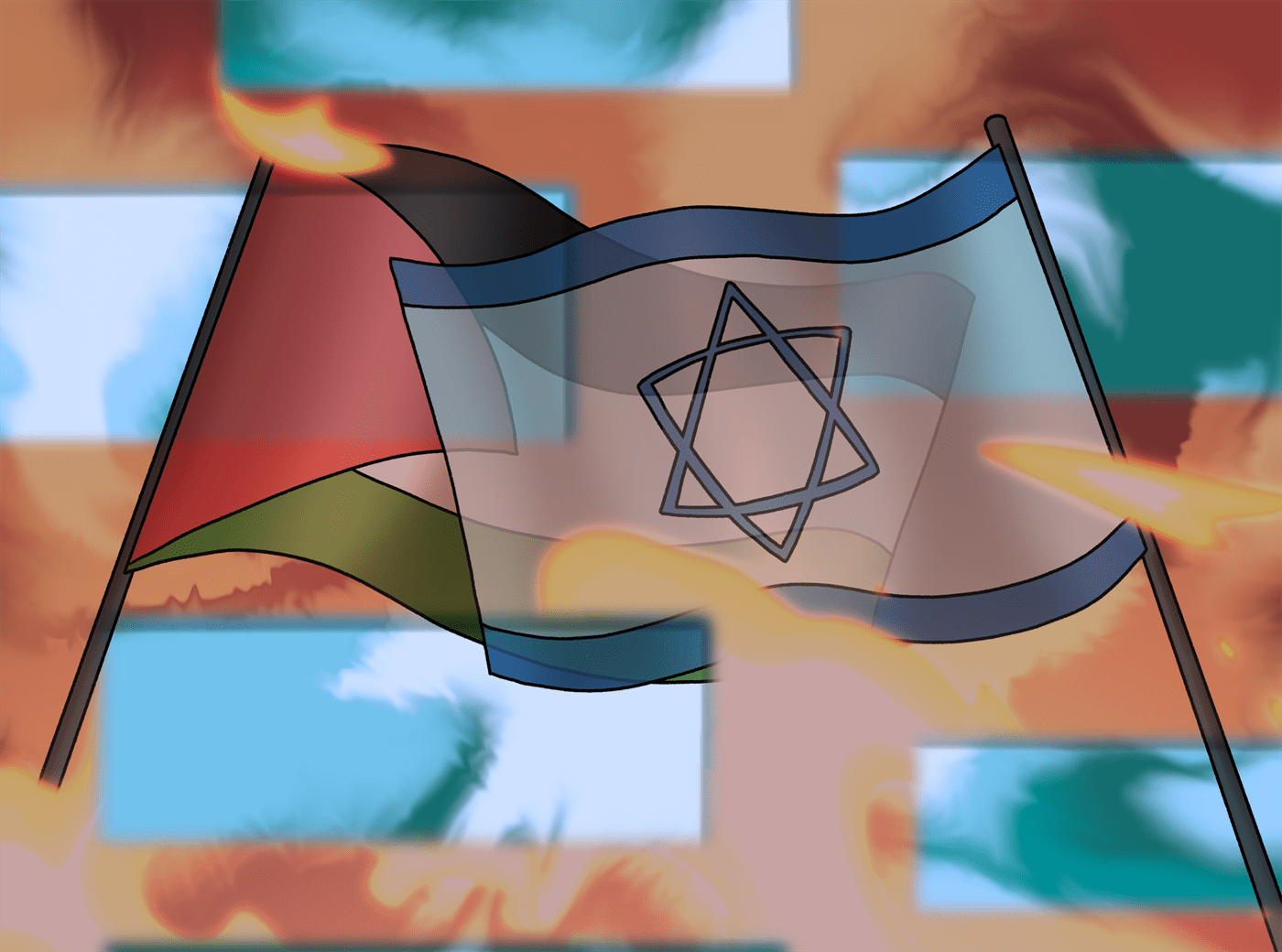“Go back to where you came from,” the sign blinked at me harshly. This wasn’t the first time I’d been told to go back to my home.
The problem, however, was that the person instructing me to do so had given a contradictory directive of returning to Israel while simultaneously demanding I leave. I’d like to note that these words are often issued by people most definitely not in their native land.
The Jewish people have frequently been the scapegoat for a lot of things. In fact, it’s our most natural position in the world. But when the United Nations (UN) voted for the Israeli state to become official in 1948, the power dynamic changed for the first time in history.
This was not without repercussions.
“Tensions between the two peoples grew when the international community gave Britain the task of establishing a ‘national home’ in Palestine for Jewish people,” BBC reports. “For Jews, it was their ancestral home, but Palestinian Arabs also claimed the land and opposed the move.”
The subsequent UN Resolution 181 attempted to create two states in order for the two peoples to co-exist peacefully, but it was rejected by the Arabs. Nonetheless, with the backing of the UN, Israel declared independence and the Arab League declared war.
Attempts at peace have been plenty, but progress on that front remains scant.
However, in recent years, everyone and their mother has an opinion on a solution.
I’ve been noticing more and more hate as time goes on. Whether that was because as an 11-year-old during the 2014 skirmishes I wasn’t online or because we’ve gotten more polarized, but from what I’ve experienced, calls for the death of Jews and Israel have become more prevalent.
Another thing I’ve noticed is that most of the hateful comments I’ve seen have been due to misinformation.
This tends to be the case and it has real-world consequences. Such as someone who put a swastika on my family’s car which severely scared me, and that’s coming from someone who doesn’t spook easily.
Was that related to a surprise active shooter drill in my Jewish private school? I can give a definite yes and the fact that those drills are becoming more common says a lot about the antisemitism uptick on its own.
I try not to engage with people who chant for my death, especially those nameless, faceless trolls who frequent Instagram, but of the few I’ve interacted with, not one could give a correct definition of Zionism.
Zionism has many branches and types, but it all boils down to “the movement for the self-determination and statehood for the Jewish people in their ancestral homeland, the land of Israel,” according to the ADL, a civil rights group working to end the defamation of the Jewish people. Supporting Zionism in this sense is just an acknowledgment that everyone wants a place to call home and the Jews would like our home to be where it has always been.
Instead, I’ve seen huge, influential accounts add to the fray, often creating posts that give an overview of what’s going on without the proper historical context. Comments on these posts are simply saturated with hateful rhetoric toward Jews, globally, not just in Israel.
In an odd, almost inconceivable twist of irony, these accounts have decided that Jews are the one minority who don’t deserve to speak for their experiences.
I’ve seen people say that as Palestinians are affected by the wars, they deserve a say in what Zionism means. For the record, no other minority has to get approval for a movement’s definition from anyone aside from the movement.
One large account dedicated an entire 10-page post to what they think Zionism is and based all of their information on an incorrect stance. They then had the audacity to write that we need to protect Jews, failing to realize it is posts exactly like that that hurt us.
Few people bother to ask the Jew’s opinion on what Zionism means or do the simple Google search that would make clear that our ultimate goal is not the genocide of the Palestinian people. They take the information at face value and use that to justify hateful messages without verifying anything.
I’ve witnessed one interaction in which someone was open and willing to learn. The person in question listened to me explain what Zionism meant to the Jews. They allowed me to describe what an active homeland would do for my people and they gave themselves the space to realize the two sides to every story.
The conversation—because that’s what it was, not an attack nor a vicious, hurtful debate—left me feeling hopeful.
We hadn’t come to a solution. We weren’t single-handedly solving the crisis, but our talk was productive in the sense that by legitimizing my point of view, we could become a “team,” in terms of facing the problem.
Suddenly, instead of pitting Palestinians against Israeli Jews, we changed the issue to Palestinians and Israelis versus the violence created by voices unheard and displeased.
I’m not naive enough to think that this one talk will solve the issue at hand. I also don’t think that I, a 19-year-old girl, will be the one to come up with the solution right now.
I’ve seen the ugly effects of misinformation firsthand. I’ve seen what open dialogue can do for a cause and completely shutting out one side, either side, will not be the way to peace. Only combatting lies with truth will help achieve the ultimate goal we both want, peace for all.



